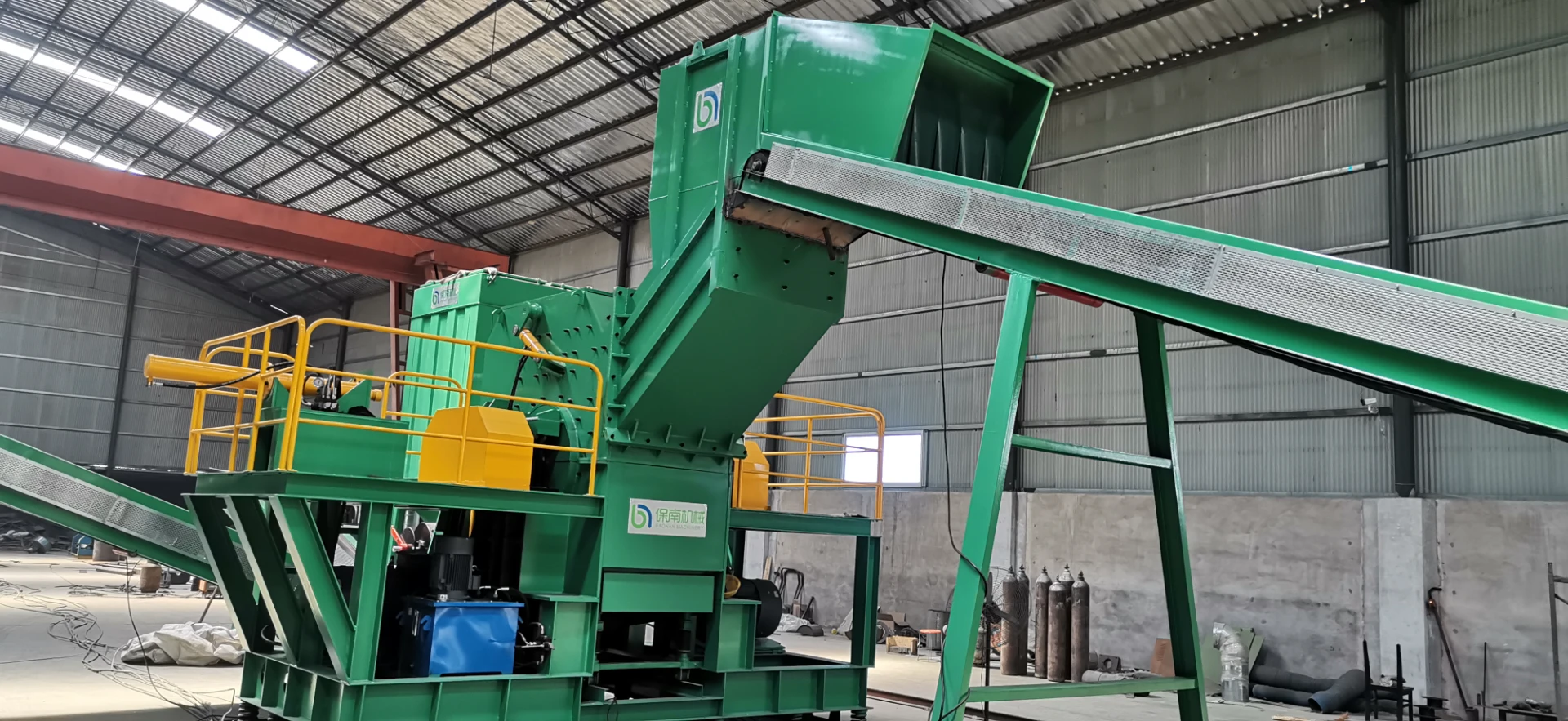

Նյմ . 21, 2024 11:51 Back to list
The Rise of Metal Recycling Plant Manufacturers A Sustainable Future
In recent years, the importance of recycling has surged to the forefront of environmental discussions. Among various recycling sectors, metal recycling has emerged as a key player in promoting sustainability and reducing waste. With growing concerns about resource depletion and environmental degradation, the role of metal recycling plant manufacturers has become increasingly crucial.
Metal recycling involves the processing and reprocessing of metals from scrap or waste materials to produce new metal products. This process not only conserves raw materials but also significantly reduces energy consumption and greenhouse gas emissions compared to primary metal production. In this context, specialized manufacturers of metal recycling plants are stepping into the spotlight, innovating equipment and technologies that streamline the recycling process.
The Importance of Metal Recycling Plants
Metal recycling plants play a critical role in the circular economy. By reclaiming metals such as aluminum, copper, steel, and precious metals from discarded products, these plants help to minimize the environmental impact associated with mining and refining new materials. Recycling aluminum, for instance, uses about 90% less energy compared to producing new aluminum from bauxite ore. This energy efficiency translates to lower carbon emissions and a significant reduction in environmental footprint.
Moreover, as urbanization and industrial activities continue to grow, the volume of metal waste is expected to increase. Metal recycling plant manufacturers are thus more important than ever. They provide the necessary technologies to handle large quantities of scrap metal, ensuring that valuable materials are reintroduced into the production cycle instead of being sent to landfills.
Key Innovations in Metal Recycling Technology
Metal recycling plant manufacturers are continuously innovating to meet the demands of the industry. One notable trend is the development of advanced sorting technologies. These technologies, such as optical sorting and laser-induced breakdown spectroscopy (LIBS), enhance the efficiency of separating different types of metals from mixed waste. By accurately distinguishing between various metal grades, recycling plants can improve the quality of recycled materials, which is vital for attracting buyers in the secondary metal market.

Additionally, automation plays a significant role in modern metal recycling facilities. Automated systems are increasingly being integrated into the recycling processes, reducing manual labor, and increasing overall efficiency. Robots equipped with artificial intelligence can identify, sort, and process metals much more quickly than human workers, leading to higher throughput and lower operational costs.
Furthermore, manufacturers are investing in sustainable practices within their own operations. This includes utilizing renewable energy sources to power recycling plants and developing machinery that minimizes water use and waste production. Such initiatives not only enhance the sustainability of the recycling process but also set a standard for the industry.
Challenges Facing Metal Recycling Plant Manufacturers
Despite the advancements in technology and growing market demand, metal recycling plant manufacturers face several challenges. The fluctuating prices of metals on global markets can make it difficult for recycling facilities to maintain profitability. Additionally, varying regulations and standards across different regions may complicate the operation of these plants.
Moreover, the supply chain for scrap metals can be inconsistent, influenced by economic conditions and competition from other industries. To address these challenges, manufacturers must be agile, adapting to changing market demands while maintaining high standards of safety and environmental responsibility.
Conclusion
Metal recycling plant manufacturers are playing an increasingly vital role in building a sustainable future. By developing innovative technologies and solutions, they are not only contributing to the conservation of resources but also reducing the environmental impact of metal production. As global awareness of sustainability continues to grow, the importance of these manufacturers in the recycling ecosystem cannot be overstated. By supporting and advancing metal recycling initiatives, they pave the way for a more circular economy, ensuring that valuable materials are reused and repurposed for generations to come.
Latest news
High-Efficiency Copper Wire Granulators | Best Price for Sale
NewsAug.28,2025
Eddy Separator for Non-Ferrous Metals
NewsAug.22,2025
E Waste Bin for Collected Spray Cans: Sustainable Disposal Solutions
NewsAug.22,2025
Dual Shaft Shredder with Adjustable Blade Gaps
NewsAug.22,2025
Hammer Crusher Machine With Secondary Crushing
NewsAug.22,2025
Copper Granulator Our Promise of Recycling Excellence
NewsAug.22,2025